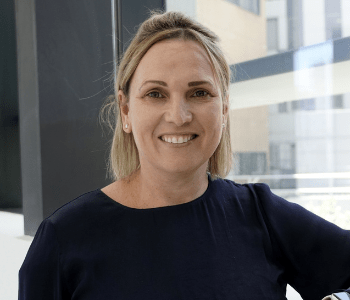
Predicting Breast Cancer Spread Using Novel Biomarkers
Published: 05/9/21 8:23 AM

Belinda Parker
Project Description: Breast cancer that is confined to the duct has a favourable prognosis. However, once tumour cells invade the surrounding breast tissue, the risk of spread to lymph nodes and distant tissues/organs (metastasis) increases. This study, led by Associate Professor Belinda Parker at the Peter MacCallum Cancer Centre and the University of Melbourne, is evaluating new biomarkers that could predict the risk of cancer spread.
Why This Work is Needed: At this time, it is very difficult to predict which ductal tumours will invade into the breast tissue and then spread throughout the body. This means that clinicians have to treat patients in a “one size fits all” manner. A biomarker that could identify which tumours are not likely to spread would mean that those patients may be spared aggressive treatments and the associated side effects.
Expected Outcomes: The study aims to develop novel biomarkers to distinguish patients that require aggressive management, such as radiotherapy and chemotherapy, and those who can be spared harsh treatments.
Project Details
Breast cancer can either be confined within the ducts (ductal carcinoma in situ, DCIS), or can spread to the broader breast tissue and other locations in the body. When the cancer is restricted to the duct, treatment is much easier and more effective. Hence, it would be beneficial for clinicians to be able to predict which tumours are likely to stay localised (requiring less intervention) and those that will spread (and need aggressive treatment).
When cancer cells leave the ducts, they need to travel through a single layer of cells called the myoepithelium. A/Prof Parker and her team have previously found that the proteins expressed in these myoepithelial cells are critical in blocking cancer cell invasion.
In this new study, the team will investigate if loss of these protective proteins leads to an increase in cancer spread in unique laboratory models. They will also use patient tissue samples to search for markers of these protective proteins, which may lead to a pathological test to determine the risk of cancer spread in patients.
The multi-disciplinary team, including pathologists, biomarker experts, clinicians and surgeons, will take the laboratory-based biological discoveries through the biomarker discovery and validation pipeline required to bring them into the clinic to help patients.